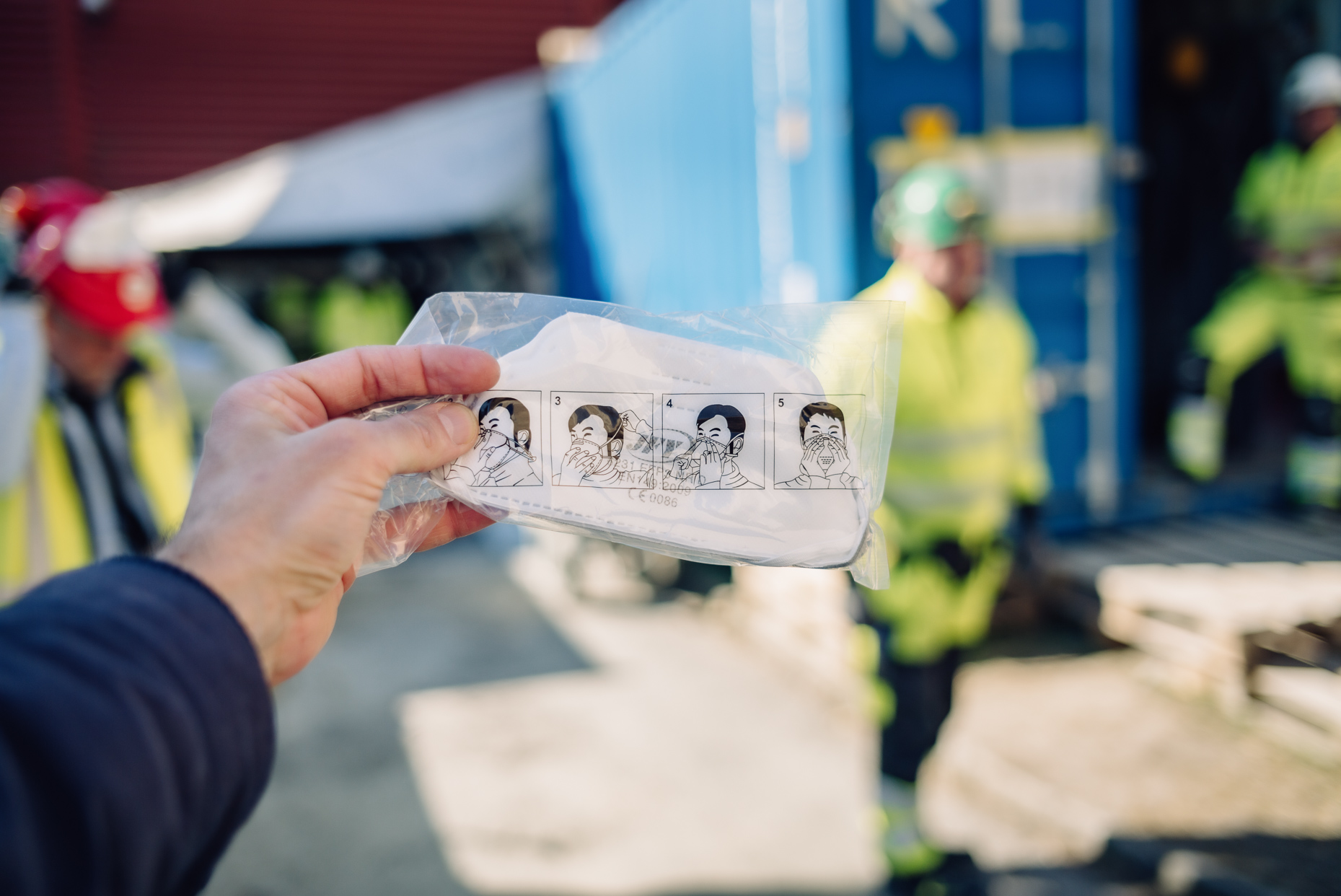A Global View on the Coronavirus Pandemic by the Primafila Correspondents Team
A Global View on the Coronavirus Pandemic by the Primafila Correspondents Team
Getting ready for cautious re-openings – at every nation’s own pace

Photo Credit: Fotogloria, Ilja C. Hendel
On the job with photographer Ilja Hendel in Oslo: Learning quickly how to adapt to new rules in the working and social life.
More than two months ago, I attended a last public event in Manhattan, the yearly Ball of the Swiss Society in New York. There was only one topic for the Swiss Americans in attendance: The new Coronavirus had just spread from China to Italy, and Switzerland. Also, the USA had just confirmed their first COVID-19 death.
We bumped elbows and didn’t hug or kiss hello, as is Swiss tradition, but we weren’t all too afraid of the virus either. After all, back in 2008, SARS-1 had remained an abstract threat, a possibility that would scare us in a blockbuster movie like Soderbergh’s now prophetic Contagion– but it never really hit home.
Ironically, we celebrated the work of Daniele Finzi Pasca that night, a Swiss artist who choreographed some of the biggest events of this young century, such as Cirque de Soleil productions and the opening ceremony of the Sochi Olympics. How much the world has changed in these two months! Will we ever witness a public event where thousands cheer hundreds of athletes? Will we ever hug and kiss hello again?
Reporting from Asia and Europe
It is relieving to hear the news that some of our correspondents from Asia and Europe report: The curve of the new COVID-19 infections in many countries is on the decline, and reopening measures are taken around the globe.
From Italy, Primafila Correspondent Claudia Flisi writes a daily blog about the situation in the Lombardy, where the virus hit early and hard. “The pandemic threat here in Italy may be subsiding,” Claudia hopes, but also warns, “Doctors and scientific advisors here caution that future waves of COVID-19 – or something else – can always be waiting in the (bats’) wings.”
“Since more than 70 percent of Italy’s 60 million residents live in urban areas, and urban areas are the most affected, it’s not too soon to wonder how cities could and should change in the wake of the corona crisis. Most Italian urban layouts are based on medieval, or Roman, or Etruscan, or even Iron Age arrangements; ergo the fundamentals are already in place. That’s what makes many Italian towns and cities so enchanting to the eye, but not necessarily supportive of the corpore sano.”
In Zurich, Primafila Managing Director Viviane Egli feels that the international atmosphere the city was so proud of has vanished. She comments: “Switzerland was hit disproportionately hard by SARS-CoV-2 and has high numbers in terms of people infected pro rata. The rich and secure, but demographically over-aged Swiss population is unsettled. The country is currently re-opening from the lockdown step by step, but with much discussion, as is part of our system of direct democracy and federal structure.”
All the more important: international communication, journalistic reporting – for Primafila the daily bread since day one. Most of our correspondents all over the world can no longer conduct interviews physically on location – and if so, only under difficult conditions and safeguarding all protective rules when photographing and filming.
Current research and predictions
Despite the difficulties, work for our team at Primafila has been as intense as ever. For our client Siemens Healthineers – trying as best as they can to support the medical community in the international crisis response – our medical expert Linda Brookes has been looking at a wide array of studies on diagnostic testing for COVID-19 and the most important biomarkers that could be useful for ruling out other infections and/or predicting clinical course. “I must stress that it isn’t a comprehensive list on the topic,” Linda wrote when she submitted her piece, referencing more than 40 sources. “I have literally thousands of papers covering this and other aspects of COVID-19!”
In the field of energy security, our man in London, Daniel Whitaker filed an article for Siemens Energy entitled “Yes, the energy transition can emerge out of the pandemic with a new start. Will policy makers listen?” that the International Energy Agency (IEA) immediately retweeted.
“We are seeing a greater reliance on digital technology and therefore a greater reliance on secure and reliable electricity supplies. With the eventual electrification of sectors like transport, industry and residential, these trends will continue long after the pandemic will be gone,” Dan predicts.
Life during lockdown
Taken together, the reports from our correspondents make one thing clear: The world tries to find a united response, but how the crisis affects your daily life very much depends on what country you live in.
“South Africans have endured five weeks of one of the strictest lockdowns in the world, with both alcohol and cigarettes deemed non-essential goods,” reports Janine Stephen, for example, from the Southern tip of Africa. “Health concerns and pressure on services certainly contributed to the sales ban: Alcohol causes more trauma admissions. Shooting, stabbing and car accident victim numbers have dropped significantly.”
Banning alcohol was also meant to try and curb the alarming domestic violence rates, Janine writes. “It aimed to give people fewer reasons to go out – or the bravado to do so.” On May 1st, the country entered a “Level Four” lockdowneasing. Yet alcohol won’t be back on sale – and neither will cigarettes, despite the best efforts of the cigarette industry lobby and concerns about a burgeoning black market and lost tax revenue.
Different problems plague South America, where case numbers are slowly, but steadily on the rise. “In Colombia some major infrastructure energy and transportation projects are on hold, although the government’s re-opening plan started with construction workers allowed to report for work again at the end of April,” says Primafila South America Correspondent Chris Kraul in Bogota.
He explains that large pending projects in Bogota include the city’s metro, a contract that has been talked about for 60 years and which was won late last year by Chinese groups (“a sign of the times”) and major highways. “The country’s economy has been hit hard by the collapse in oil prices. Oil field investment is going to also collapse this year,” writes Chris.
While at the moment very little of the news we get is good, the personal exchange with our members of the global Primafila Correspondents Team is as lively as never before. This helps here in New York, where we will remain under a lockdown for quite some time. Thank you to the Primafila Correspondents on all continents and in all fields, for keeping us updated, and giving us – and our readers – inspiration and impetus!
Roman Elsener,
US Offices Primafila AG,
New York, May 1st
